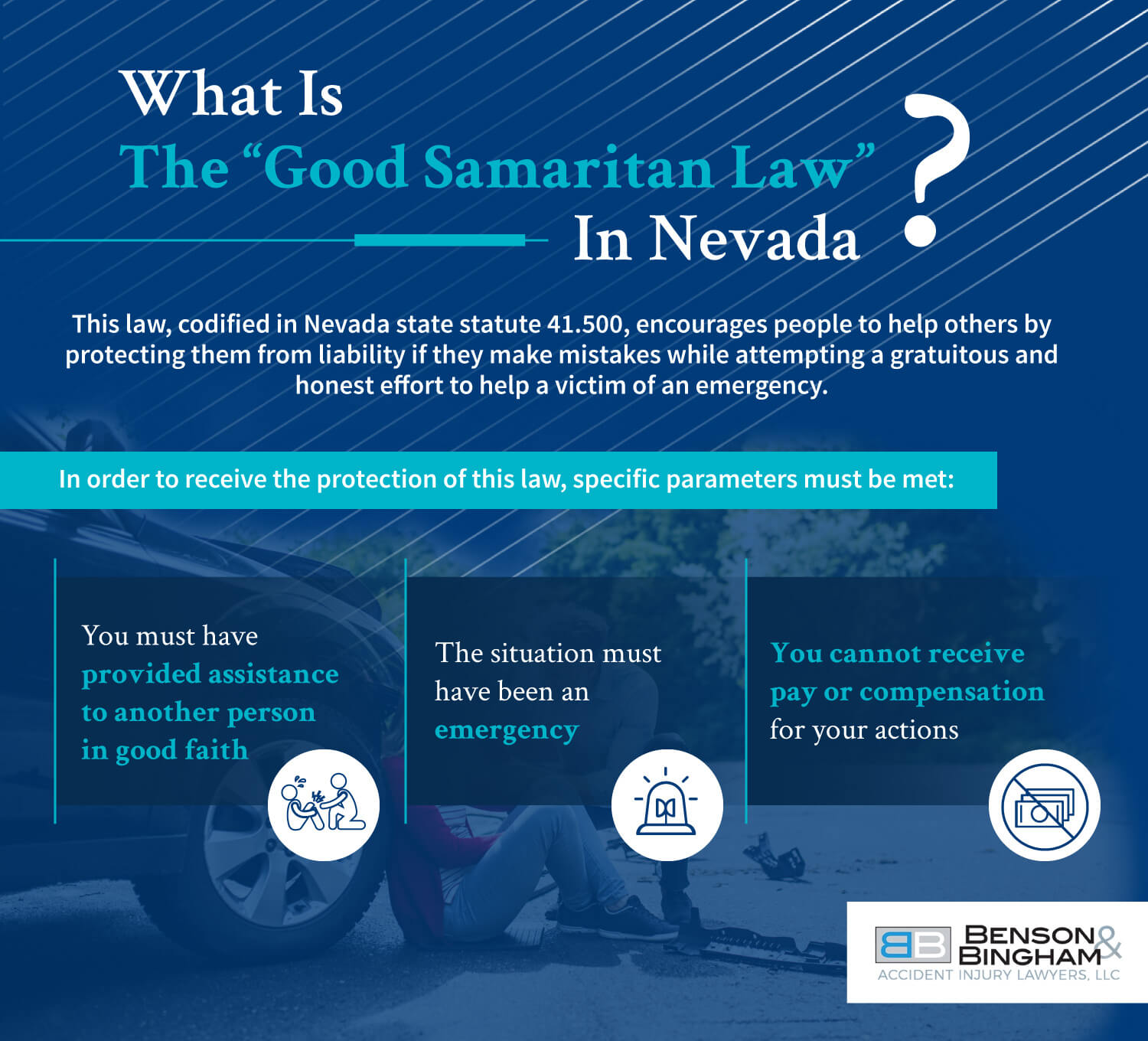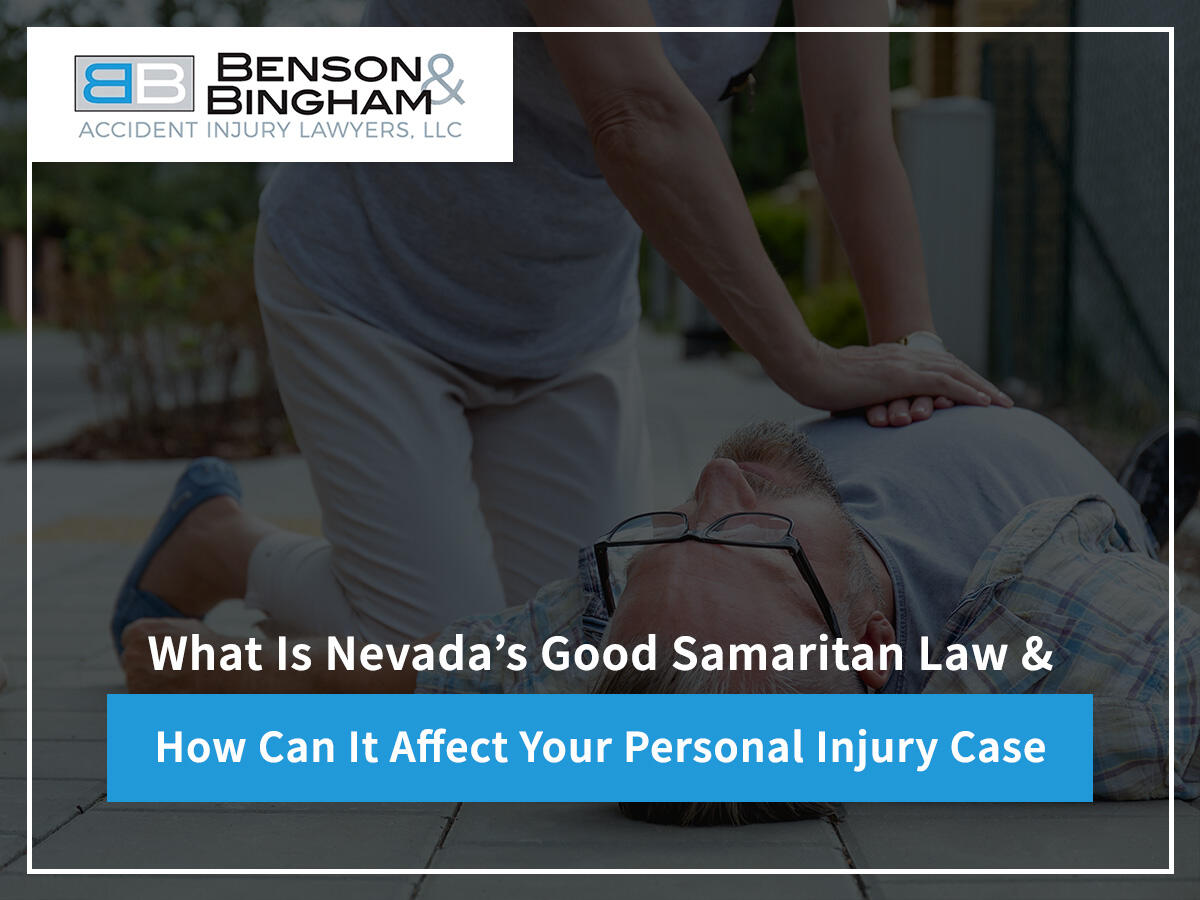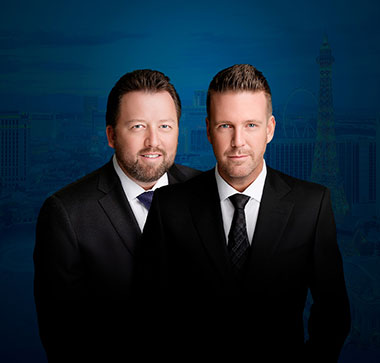How Do Good Samaritan Laws Work?

Imagine that you are out running errands when you witness someone get a serious injury and start bleeding profusely. Although you don’t have any medical training, you rush to the person and start applying pressure in order to slow the bleeding while you wait for an ambulance to arrive. Your quick actions might have saved that person’s life. Then several months later, you find out that the person wants you to pay them damages because they believe your attempts to help were negligent. Now, what do you do?
Nevada recognizes a “Good Samaritan Law” that protects people in this type of situation. Your Nevada personal injury attorney can help you understand how this law may apply to your situation.
What Is The “Good Samaritan Law” In Nevada?
This law, codified in Nevada state statute 41.500, encourages people to help others by protecting them from liability if they make mistakes while attempting a gratuitous and honest effort to help a victim of an emergency.
In order to receive the protection of this law, specific parameters must be met:
- You must have provided assistance to another person in good faith
- The situation must have been an emergency
- You cannot receive pay or compensation for your actions

The law has certain exceptions, which will be discussed below. Consult with your Las Vegas personal injury lawyer if you are wondering whether you can receive protection from the Good Samaritan law.
In 2015, Nevada expanded the Good Samaritan law to include opioid overdose prescriptions, protecting medical professionals who have the legal authority to write prescriptions from negative outcomes. The person who gives the antidote is also protected from legal liability.
Why Was The Good Samaritan Law Enacted In Nevada?
Lawmakers wanted to encourage people to help others in an emergency situation. Most of the time, people who witness an emergency want to help the victim(s), but they don’t want to worry about the liability for their actions. Because simple actions, such as putting pressure on a bleeding wound, can significantly reduce the severity of injuries or save the victim’s life, Good Samaritan laws encourage people to help others without having to wonder if they will be held liable.
What Are The Exceptions To The Good Samaritan Law?
There are a few exceptions to the Good Samaritan law in Nevada that are important to be aware of.

The Situation Must Be An Emergency: Good Samaritan laws only apply to actual emergencies. If you attempt to help someone who is not actually in an emergency situation, you can face liability for negligence. This includes if your actions cause an emergency to subsequently take place.
You Caused The Emergency: You cannot use the Good Samaritan law as your defense if your actions caused the emergency. The law only applies to innocent bystanders; if you caused the emergency, you may be held liable for the outcome.
Gross Negligence Or Intentional Harm: You are not protected from legal liability if you are grossly negligent or intentionally harm the victim while offering aid. For example, you cannot make obvious errors when offering care and cannot act with reckless or deliberate misconduct. If you do something that is obviously wrong, negligent, or harmful, you may still be legally liable for the consequences of your actions.
You Have A Duty To Provide Aid: Nevada law indicates that some people have a duty to render aid in certain situations. For example, if a hotel guest or child in daycare is injured in an emergency, the hotel manager or daycare provider has a legal duty to provide aid to the person in their care. This means that Good Samaritan laws don’t apply to that situation.
You’re A Paid Medical Responder: If you are paid to work for EMS or are another type of paid medical responder, you have a duty to provide reasonable care and are not protected from legal liability by Good Samaritan laws in case of negligent care.
Am I Required To Give Aid If I Witness An Emergency?
You may be obligated to provide aid if you have a particular relationship with the person in distress, such as if you are the parent or primary caregiver. However, you are not obligated to stop and give aid to a stranger. Although many people would argue that you have a moral obligation to help someone in distress, you are legally able to decline to provide aid to a stranger, even during an emergency.
How Can A Personal Injury Lawyer Help Me?
If you were injured and are wondering how Nevada’s Good Samaritan law may apply to your case, ask your Las Vegas personal injury attorney to review the situation. Your attorney can evaluate your case and help you understand how the law may impact you or how you can respond to arguments from the other party in your lawsuit.
Work With A Trusted Personal Injury Lawyer In Las Vegas
Benson & Bingham Accident Injury Lawyers, LLC, are redefining personal for our clients. When you work with our firm, you won’t be stuck with cookie-cutter responses; you can expect deep personal care and compassion with a personalized approach. Trust us to handle your case with professionalism, respect, and legal expertise for the best possible outcome. Schedule your confidential case review with us today!


